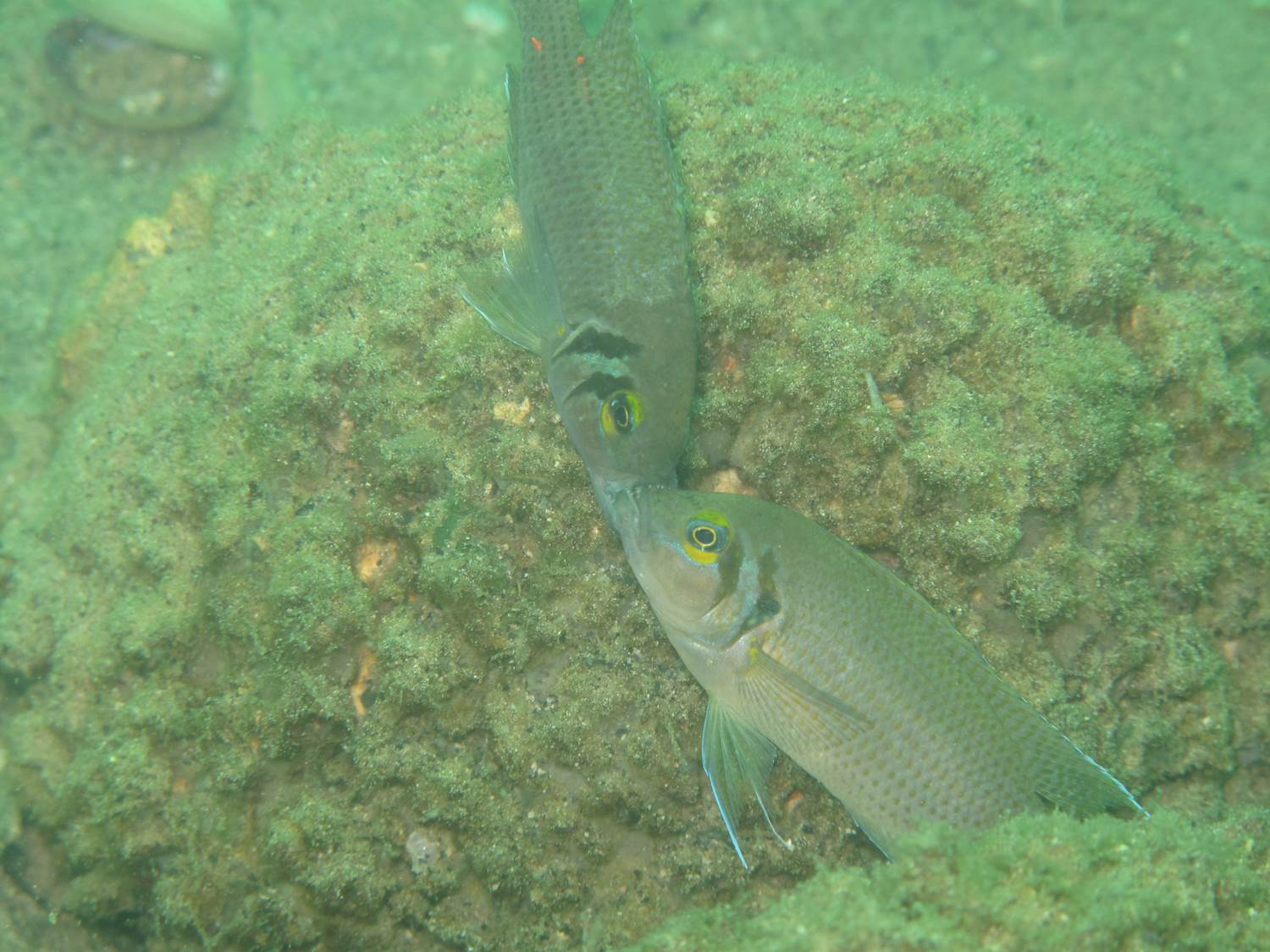Aggressive cichlids: attack is the best form of defence
Researchers from Bern, England and Australia have observed the "Princess of Lake Tanganyika" cichlid in territorial conflicts and made an astonishing discovery; the conflicts distract the animals from their surrounding environments to such an extent that they notice lurking dangers only very late – yet the fish have a strategy which saves their lives: instead of trying to escape from predators, they defend themselves.
For animals which live in groups, the ability to prevail among their own kind is of decisive importance. In the animal kingdom, winning aggressive conflicts is often important for achieving a high social status, impressing potential mates or gaining territories.
As discovered during a recent study by a team of researchers led by Prof. Barbara Taborsky from the department of Behavioural Ecology at the University of Bern, Dr. Stefan Fischer from the University of Liverpool, and Sybille Hess from James Cook University in Australia, aggressive behaviour has the disadvantage, however, that it can distract an animal from danger. In aquarium experiments, the researchers were able to prove that when involved in conflicts with conspecifics, cichlids noticed predatory fish later. In a natural environment they would therefore be at a higher risk of being eaten.
In a blind fury
In their study, the team of researchers observed the "Princess of Lake Tanganyika" variety of cichlid (Neolamprologus pulcher) in territorial conflicts in a laboratory setting. Every fish was given a territory which it had to defend against a group of invaders. This was equivalent to a stress situation which the animals also experience frequently in Lake Tanganyika, but with one difference: the fish were separated by a transparent divider in order to prevent injuries.
"Territorial conflicts can be very intense, and we asked ourselves whether the fish are able to monitor their environment at the same time," explains Stefan Fischer. "This can be of importance for survival because a predatory fish could appear and attack the fish at any time."
To ascertain whether fish that are engaged in a conflict are actually distracted, the researchers used a computer-animated "predatory fish" which they programmed to swim by in the background. "When the fish were in their territory alone, they usually noticed the predatory fish within seconds," explains Sybille Hess. "When the fish were involved in a contest with the invaders, however, they only discovered the predatory fish much later, even if it passed by behind them less than an arm's length away." The more intense the battle, the longer the fish required to discover the predator.
Resistance instead of flight
The study also yielded a further surprise. "When the fish were alone, they usually hid as soon as they noticed the predator," explains Stefan Fischer. "Yet when they were engaged in a battle with the invaders, their response was different – they reacted aggressively to the predator or even attacked it." This behaviour is especially surprising if one bears in mind that the predatory fish was several times bigger than the fish itself.
"The fish appear to adapt their response to the situation," explains Barbara Taborsky. "When the fish notice the predator at an early stage, it seems that the best response is to get away. If they discover the predator later, however, attacking it is likely, and aggressive resistance can also increase the survival chances of the fish – attack as the final form of defence, as it were." Such a form of resistance could thus compensate for the fact that the fish are distracted from their environment during conflicts. This hypothesis still has to be examined in greater detail on the basis of studies in a natural setting, however.
Publication details:Sybille Hess, Stefan Fischer & Barbara Taborsky: Territorial aggression reduces vigilance but increases aggression towards predators in a cooperatively breeding fish. Animal Behaviour, 15.02. 2016, DOI: 10.1016/j.anbehav.2016.01.008 |
2016/02/16


